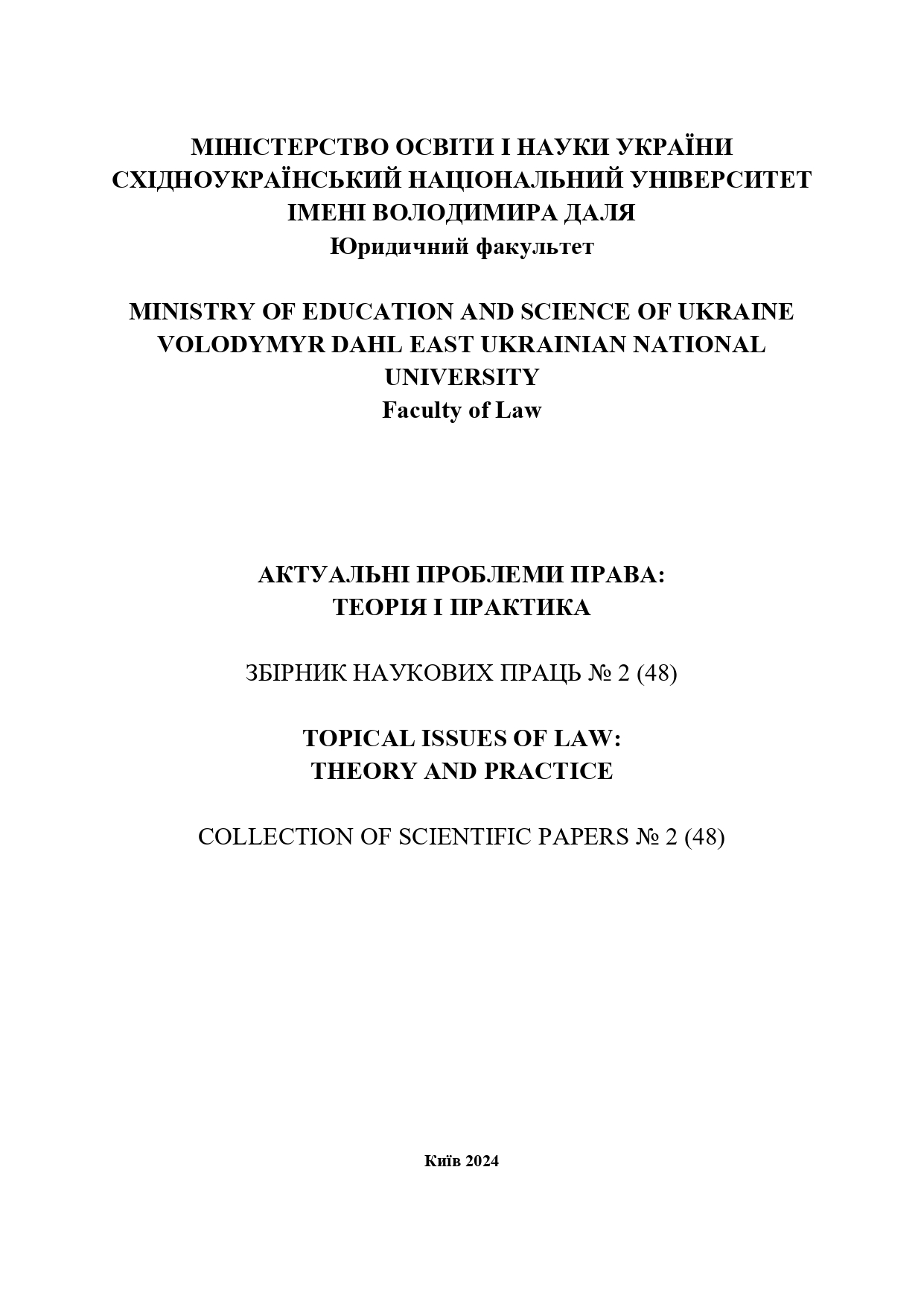FRUIT OF POISONOUS TREE DOCTRINE: DOMESTIC AND INTERNATIONAL PRACTICE OF APPLICATION
DOI:
https://doi.org/10.33216/2218-5461/2024-48-2-11-22Abstract
The article reveals and details the doctrine of the
fruit of the poisonous tree as one of the most relevant
concepts of criminal procedure, which has a
fundamental theoretical and applied significance in
the context of the practice of international judicial
bodies.
The article focuses on the standards of
admissibility of evidence developed and based on the
case law of the European Court of Human Rights. In
particular, the author analyses the legal positions of
the ECHR which raise problematic aspects of the
admissibility of evidence and their assessment by
national courts with a view to ensuring compliance
with procedural guarantees.
As a result, the author defines the essence of the
doctrine of the fruit of the poisonous tree in terms of
its origin and approaches to understanding, through
the prism of the Supreme Court of Ukraine's case law
and its importance in the national judicial system. The
author determines that the doctrine provides that if a
source of evidence is inadmissible as a result of a
violation of criminal procedure legislation, then other
evidence obtained with its help will be the same. The author establishes that the primary condition for the application of the studied doctrine is the causal link between the primary inadmissible evidence obtained with violation of the essential rights and freedoms of a person in criminal proceedings and the derivative evidence obtained through this information.
Keywords: criminal procedure, European Court of Human Rights, fruit of poisonous tree doctrine, inadmissibility of evidence, right to a fair trial, court practice, Supreme Court of Ukraine.

